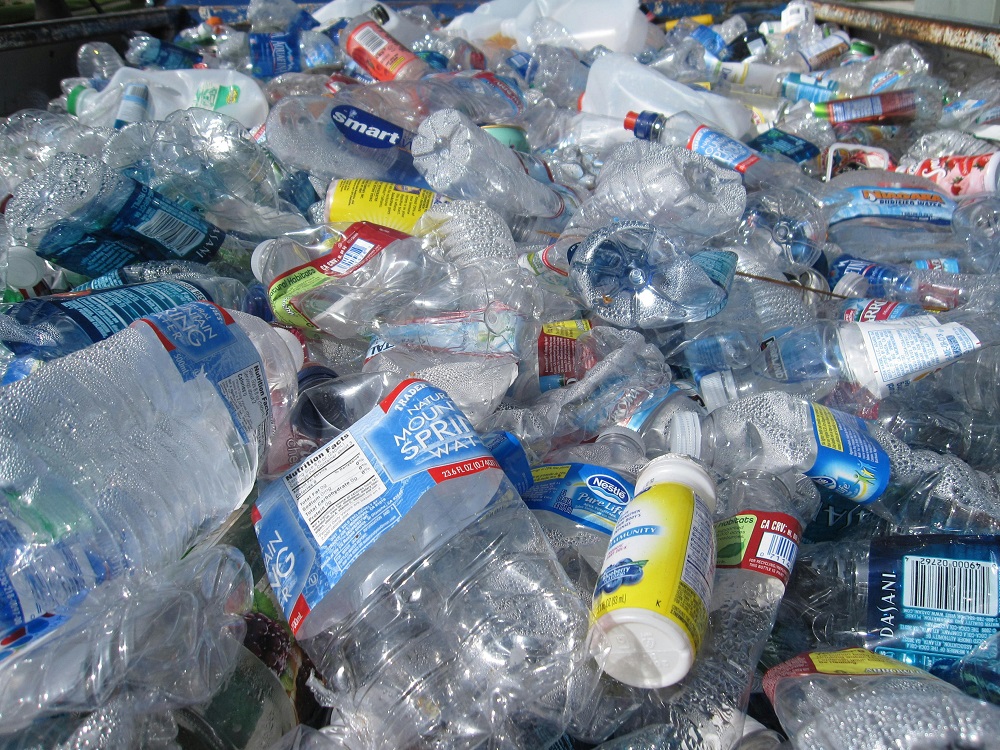April 22 is Earth Day, a day that underscores the importance of conserving our environment and advocating for greater sustainability. It’s a call to action for a healthier planet and a greener future. Biotech is helping answer that call.
Earth Day 2024: Planet vs. Plastic
A major focus of Earth Day 2024 is plastic, with the theme, “Planet vs. Plastic.”
EARTHDAY.ORG is calling for a 60% reduction in the production of all plastics by 2040, urging businesses and consumers to take meaningful steps to reduce plastic consumption and waste.
“Of the 9 billion tons of fossil fuel plastic produced since the 1950s, only 9% has been recycled,” according to the AP.
Avoiding plastic products, especially single-use plastics, could make a major difference, and so could managing waste more mindfully, recycling, and reusing.
“Our reliance on plastics could be the biggest gamble in the story of human health, in history. We are all ingesting and inhaling microplastics. They are everywhere. Are we just hoping they are safe or is even the remotest possibility they might be toxic so terrifying that we can’t contemplate it?” asks Kathleen Rogers, President of EARTHDAY.ORG.
Exposure to plastics and microplastics has been proven to impose health risks, although the full extent of the damage is not yet fully known.
“There is evidence that microplastics bioaccumulate in our major organs (including the brain) and evidence that nanoplastics can breach the blood-brain barrier,” according to a new report from EARTHDAY.ORG. “Microplastic ingestion, inhalation, and bioaccumulation have been linked to a wide range of health issues in children; one study found that phthalate exposure (a chemical used in the making of certain types of plastics) was associated with a 20% higher rate of childhood cancer overall.”
How biotech is addressing plastic pollution
“Replacing fossil-based, non-biodegradable plastic with plant-based options is one part of the solution,” said the Biotechnology Innovation Organzation’s Theresa Brady on a recent episode of the I am BIO Podcast.
BIO member Virent converts corn, sugar beets, and sugar cane into an alternative to plastic that is produced with lower emissions and carbon intensity than traditional, petroleum-based plastic, according to Virent VP Andrew Held. Virent worked with Coca-Cola to produce 900 plastic bottles made entirely of plant-based ingredients.
Scientists are also genetically engineering microorganisms that eat plastic, according to a paper published in the American Institute of Chemical Engineers Journal. The microorganism can break down polyethylene terephthalate (PET), one of the main polluters in the ocean.
“From a practical standpoint, this is the first genetically engineered organism that we know of that is capable of breaking down PET microplastics in saltwater,” said Tianyu Li of NC State University Department of Chemical and Biomolecular Engineering, the first author of the paper.
Danimer Scientific, another biotech company featured on the I am BIO Podcast, developed a biodegradable plastic alternative, polyhydroxyalkanoate (PHA) biopolymer. The material is biodegradable in seawater and freshwater, soil, and home compost bins, breaking down when it comes in contact with microorganisms.
Why we need biotech plastic solutions
To create a healthier and plastic-free world, we must embrace innovative technologies and invest in sustainable solutions.
Currently, bioplastics make up less than 1% of the global plastics market, which is valued at over $600 billion. But in Q1 of 2022, $500 million was spent in the bioplastics sector, as opposed to $350 million in Q4 of 2021.
The global bioplastics market has been estimated by Zion Market Research to be worth $10.51 billion in 2021 and is projected to hit $29 billion by 2028.
Investment in these solutions is critical. The recent OECD Global Plastics Outlook found only 9% of plastic waste is recycled, highlighting the need for solutions like renewable and biodegradable plastic alternatives.
“Reducing pollution from plastics will require action, and international co-operation, to reduce plastic production, including through innovation, better product design and developing environmentally friendly alternatives, as well as efforts to improve waste management and increase recycling,” said the OECD.




